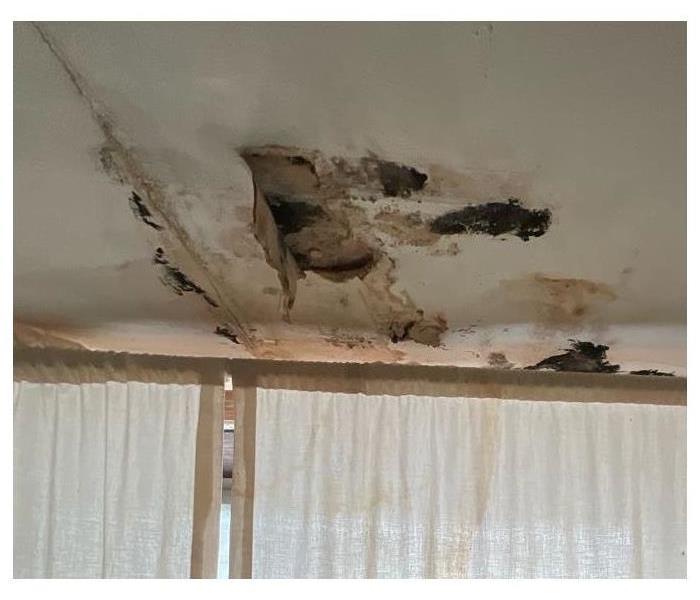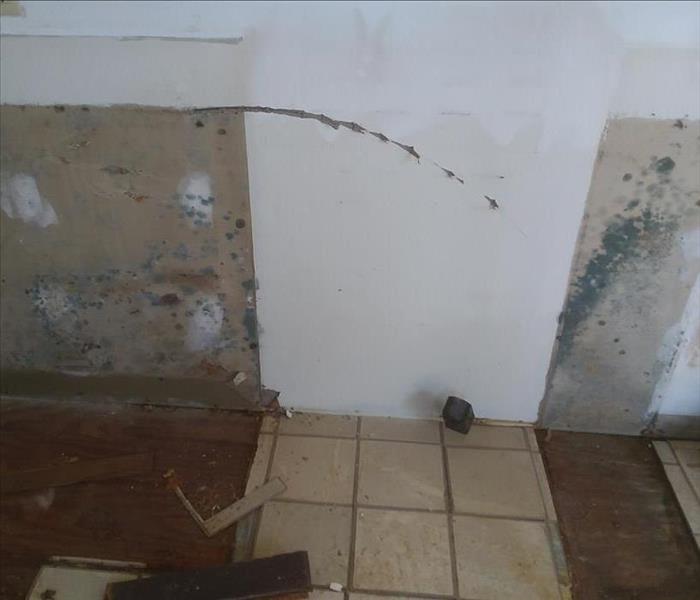The top FAQ's we get about Mold in Greene County, NY
5/23/2023 (Permalink)
 Mold growth occurs all year long, call the experts in Mold Remediation to take care of it the right way, the first time!
Mold growth occurs all year long, call the experts in Mold Remediation to take care of it the right way, the first time!
Doesn't matter the season, there will always be mold in N.Y. Here's some of our most popular questions and answers to this irritating product of nature.
“It’s 20 degrees out, there’s no way that is mold growing in my basement, it’s not warm enough.”
The hard truth is that mold, or microbial growth, happens whenever there is a consistent moisture or water source and it’s above 32 degrees. That means a leaky hot water heater or pipe in the ceiling can very well be the source of mold in the winter in your basement.
“Ok, yes it smells funky and we noticed a leak in the wall, but it’s been fixed, now what?”
Ah, yes- the undeniable smell of mold. The dirty, musty, earthy, mushroomy, slightly bitter, off-putting, something-is-weird-here smell. Now, put down the bottle of bleach. Trust us, that will only touch the surface of the mold growth. Even if you see a difference when you scrub it, the inside of the material is still harboring a whole colony of microbes.
“Yuck, where does it even come from?”
Microbial growth is naturally occurring in the environment and gets into your home through hitching a ride on clothes, shoes and pets. But it will always be present when water is present. Mold spores just need moisture, comfy temperature and a good food source like wood or sheet rock to live and grow.
“But it’s cold out, how is it growing?”
It’s not 20 degrees inside your walls unless they’re completely uninsulated from the environment. A basement, crawl space and attic usually are insulated to help keep pipes from freezing in the winter and to keep heat inside. If you have an unknown pipe leak in the wall or ceiling, mold can start growing in as little as 48 hours. It does take longer to grow in the winter months, but it will still be there.
If bleach won't work, how do I get rid of it?”
The first step is to call a certified mold remediation company, like SERVPRO of Columbia & Greene Counties. Our experienced team will ask a few questions to get a good idea of what you might be dealing with. In some cases, they’ll recommend you have the mold tested by a mold assessor. Those are independent companies who focus on the science behind the mold and what kind you could have.**
What the mold assessor finds by lab testing is what our remediation techs use as a protocol for treatment and mitigation. We’ll be happy to give you a few names of companies we’ve worked with before and you can choose whoever you feel is the right fit for your situation.
Utilizing the protocol, our certified mold remediation pros will handle the containment, removal and treatments of the affected areas in your home, that can also include drying equipment and specialized treatments depending on the scope of the project.
Once the mitigation is complete, the assessor will come back to re-test to make sure all is clear. This is crucial to get documented as well when you sell or if you’re buying a home.
If you think you might have a mold issue in your home or business anywhere in Columbia or Greene Counties, trust the local experts who have been taking care of the Hudson Valley for over 30 years. We’ll walk you through every step of the way, and always here to help-24/7.
**Per NY State guidelines- the remediation company and the mold testing company can not be one and the same, that’s a significant conflict to you as the consumer.

 24/7 Emergency Service
24/7 Emergency Service
